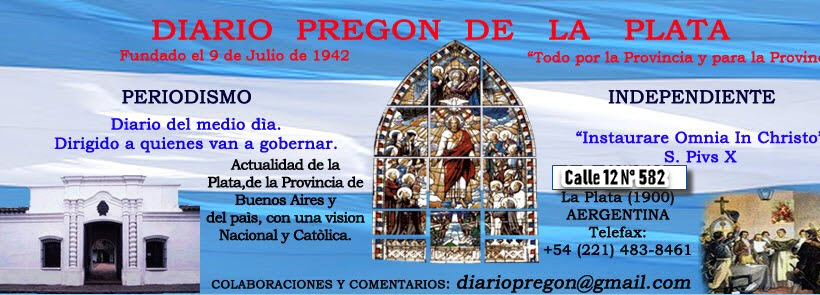The thinking of Msgr Richard Williamson
Bishop of the Society of St. Pius X
Number CCLXIII (263) - 28
July 2012
May Catholics who wish to keep the Faith attend
a Tridentine Mass celebrated by a priest who is part of the Conciliar Church,
for instance by his belonging to the Institute of Christ the King or to the
Fraternity of St Peter ? The answer has to be that, as a rule, a Catholic may
not attend such a Mass, even if it is a Tridentine Mass, and even if it is
worthily celebrated. What can be the justification for such a seemingly strict
rule ?
The basic reason is that the Catholic Faith is
more important than the Mass. For if through no fault of my own even for a long
time I cannot attend Mass but I keep the Faith, then I can still save my soul,
whereas if I lose the Faith but for whatever reason go on attending Mass, I
cannot save my soul (“Without faith it is impossible to please God” - Heb. XI,
6). Thus I attend Mass in order to live my Faith, and, belief going with
worship, I attend the true Mass in order to keep the true Faith. I do not keep
the Faith in order to attend Mass.
It follows that if the celebration of a
Tridentine Mass is surrounded by circumstances that threaten to undermine my
faith, then depending on the gravity of the threat, I may not attend such a
Mass. That is why Masses celebrated by schismatic Orthodox priests may be
valid, but the Church in her right mind used to forbid Catholics to attend on
pain of grave sin, because, belief and worship going together, the non-Catholic
worship threatened the Catholics’ faith. Now Orthodoxy has in the course of
centuries caused huge harm to the Catholic Church, but can anything compare
with the devastation wrought upon that Church within mere tens of years by
Conciliarism ? If then Catholics were forbidden to attend Mass in Orthodox
circumstances, would not the same Church in her right mind forbid to attend a
Tridentine Mass celebrated in Conciliar circumstances?
Then what is meant by Conciliar circumstances ?
The answer must be, any circumstances which, over a shorter or longer period of
time, are going to make me think that the Second Vatican Council was not an
utter disaster for the Church. Such a circumstance might be a charming and
believing priest who has no problem with celebrating either the new or the old
Mass, and who preaches and acts as though the Council presents no serious
problem. Conciliarism is so dangerous because it can so be made to seem
Catholic that I can lose the Faith without - or almost without - realizing it.
Of course common sense will take into account a
variety of special circumstances. For instance a good priest trapped for now
within the Conciliar church may need encouragement to start on his way out of
it by my attending his first celebrations of the true Mass. But the general
rule must remain that I can have nothing to do with even the true Mass being
celebrated in a Conciliar context. For confirmation, notice how Rome began by
allowing the Institute of the Good Shepherd to celebrate exclusively the true
Mass, because Rome knew that once the Institute had swallowed the official
hook, eventually Rome could be sure of pulling the Institute into their
Conciliar net. Sure enough. It took only five years.
That is the danger of any practical agreement
without a doctrinal agreement between Rome and the Society of St Pius X. So
long as Rome believes in its Conciliar doctrine, it is bound to use any such
agreement to pull the SSPX in the direction of the Council, and the context of
every SSPX Mass would become Conciliar, if not rapidly, at least in the long
run. Forewarned is forearmed.
Kyrie eleison.


No hay comentarios:
Publicar un comentario
Los mensajes son moderados antes de su publicación. No se publican improperios. Escriba con respeto, aunque disienta, y será publicado y respondido su comentario. Modérese Usted mismo, y su aporte será publicado.